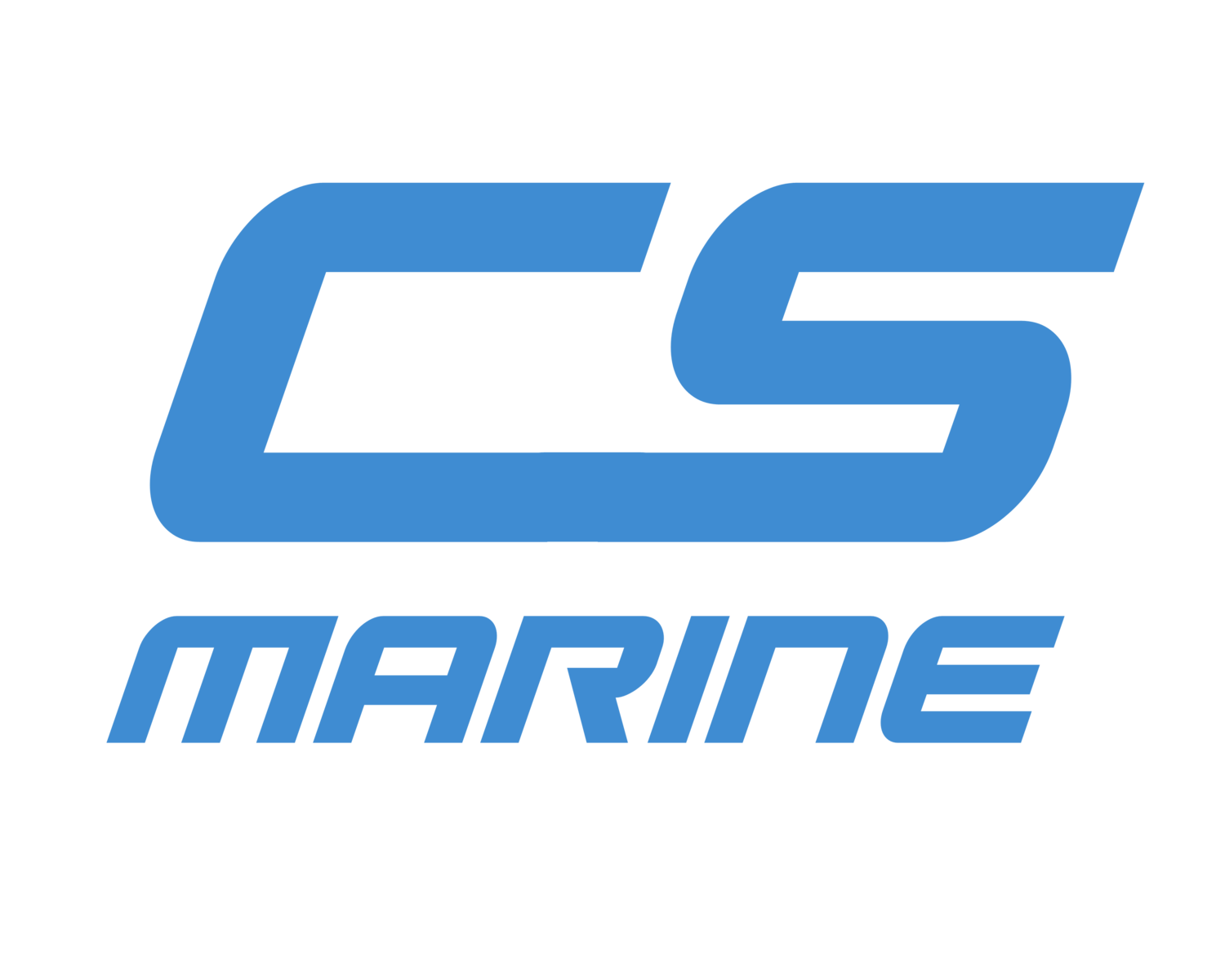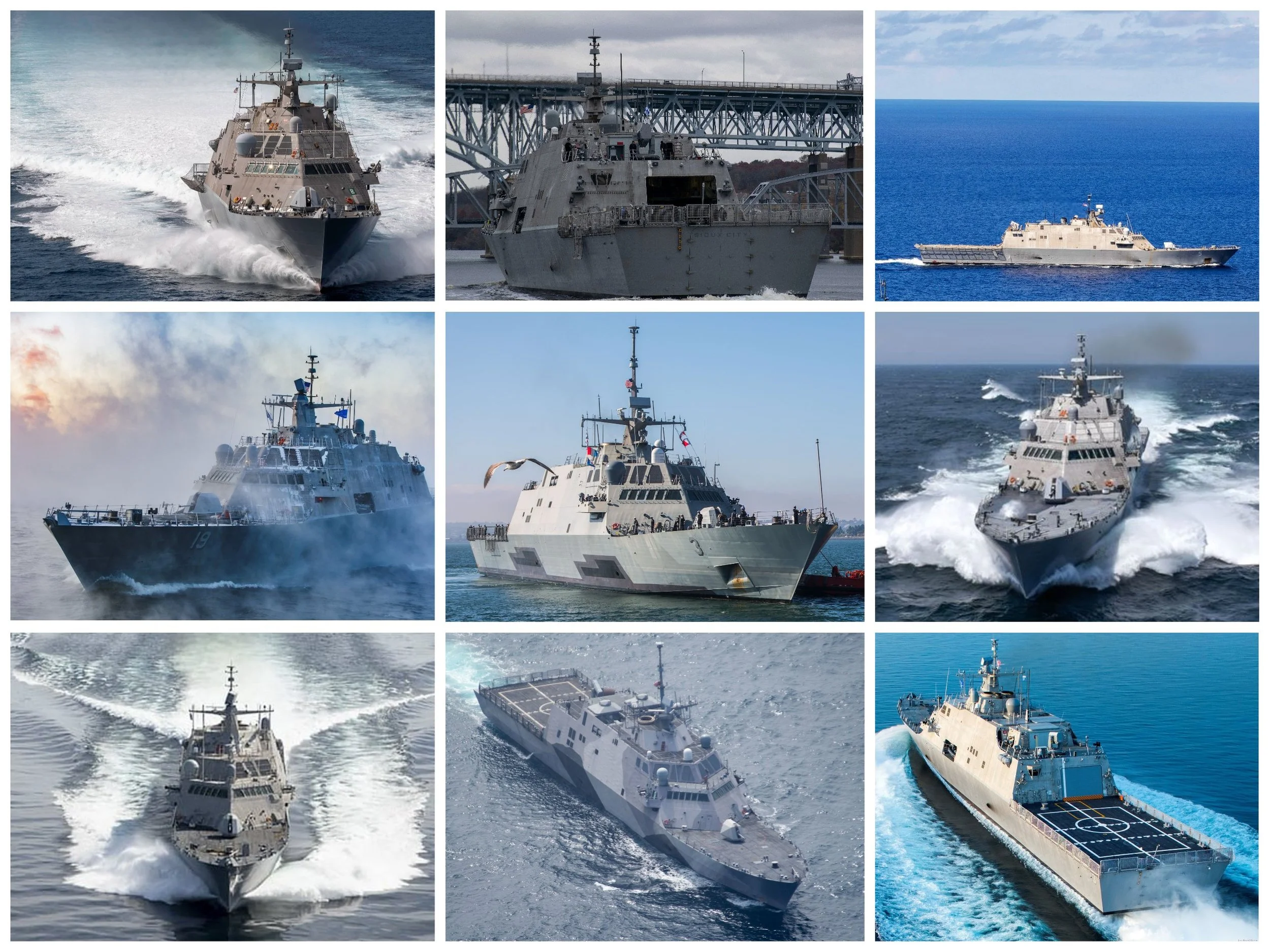June 14, 2022 6:21 PM • Updated: June 17, 2022 5:55 PM
The nine in-commission Freedom-class Littoral Combat Ships the Navy is proposing to decommission as part of the FY 2023 budget. US Navy Photos
House defense appropriators want the Navy to keep five Littoral Combat Ships but will allow the service to decommission four, according to text of the Fiscal Year 2023 defense spending bill.
The legislation, released today by the House Appropriations defense subcommittee, would complicate the Navy’s plans to decommission nine Freedom-class Littoral Combat Ships next year.
The bill “directs a report on alternate uses of these vessels, such as missions in the [U.S. Southern Command] and [U.S. Africa Command] areas of responsibility; and permits the decommissioning of four ships, which would also allow the Navy and the Defense Security Cooperation Agency to explore the possibility of transferring them to partner nations,” according to a summary from the subcommittee.
Seeking to defend the Navy’s push to decommission the LCSs, Chief of Naval Operations Adm. Mike Gilday last month proposed to lawmakers that the service evaluate transferring the ships to countries in South America.
The effort to retire the Freedom variant ships follows two major issues that have affected the class: a problem with the combining gear that marries the gas turbines to the diesel engines and the Navy’s struggle to field the anti-submarine warfare package for the LCS Mission Module on the Freedom hull. Earlier this year the Navy said it would axe the ASW mission for the LCS.
House defense appropriators met the Biden administration’s request, allotting $762 billion in defense spending.
The lower chamber’s bill would allot $27.8 billion for the Navy to buy the eight ships it asked for in the FY 2023 request, including two Virginia-class attack submarines, two Arleigh Burke-class destroyers, one Constellation-class frigate, one San Antonio-class amphibious transport dock, one T-AO-205 John Lewis-class oiler and one T-ATS 6 Navajo-class towing, salvage and rescue ships.
The House Appropriations defense subommittee’s summary of the legislation noted the panel did not include any research and development funding for the low-yield Sea-Launched Cruise Missile, a program that has become controversial in the last year. Some Republican lawmakers have voiced support for the program, known as SLCM, as have Vice Chairman of the Joint Chiefs of Staff Adm. Christopher Grady and U.S. Strategic Command chief Adm. Chas Richard. But House Democrats, including House Armed Services Committee chairman Rep. Adam Smith (D-Wash.), have voiced opposition to the program’s development.
As for aircraft procurement, the appropriators allotted funding for the Navy to buy the five MQ-9A Reapers the Marine Corps sought and 12 CH-53K King Stallion heavy-lift helicopters. The Navy asked for 10 CH-53Ks for the Marine Corps in its budget submission. It also appropriates money for five E-2D Advanced Hawkeyes, meeting the Navy’s request.
It’s unclear where HASC will come down on the LCS decommissionings. The HASC seapower and projection forces subcommittee punted the issue to the chairman’s mark, which the committee will release next week. But some HASC lawmakers have criticized the Navy’s proposal, noting the LCSs have years of service life left.
The Navy’s FY 2023 budget request sought to decommission a total of 24 ships, including the 9 LCSs, but met swift criticism in Congress.
The HASC seapower and projection forces subcommittee’s mark of the defense policy bill would mandate the Navy keep four Whidbey Island-class dock landing ships – USS Germantown (LSD-42), USS Gunston Hall (LSD-44), USS Tortuga (LSD-46) and USS Ashland (LSD-48) – and Ticonderoga-class guided-missile cruiser USS Vicksburg (CG-69), which is nearing the end of a modernization overhaul. All five ships were on the Navy’s FY 2023 decommission list.


